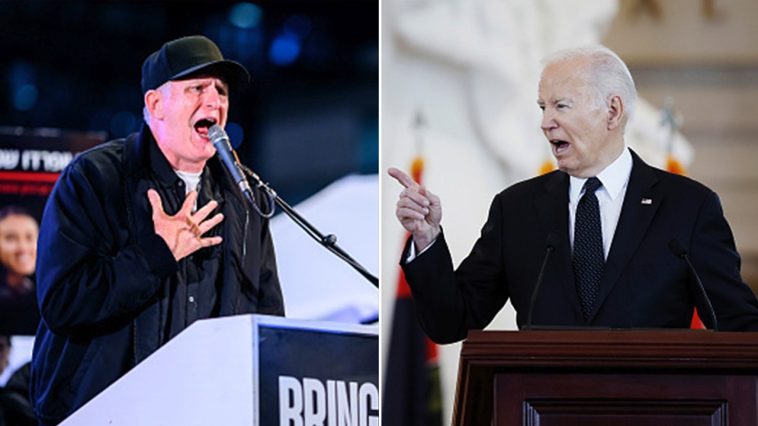A respected figure in Hollywood who is known for his outspoken views against the former Republican administration, has publicly withdrawn his support for the incumbent President. This largely pertains to the recent controversial decisions concerning the United States and its relationship with the state of Israel. Actor Michael Rappaport expressed his dismay through a flurry of strong words aimed at the President, signaling a shift in his allegiance.
Rappaport, who is known to have a disapproval for ex-President Donald Trump and frequently used a set of inventive epithets to express this, shifted his focus to the current President. This came with a passionate and fiery dialogue wherein he expressed his discontent over recent policy decisions, specifically those relating to Israel.
Even before this episode, there were signs that Rappaport was beginning to question his support for the incumbent President. In an interview conducted in March, he shared hints that his endorsement for President Biden was waning. This was not just limited to the stance on Israel, but also extends to other policy areas.
Among those other areas was the handling of the country’s borders, which Rappaport was vocally unhappy with. It’s clear that the actor holds strong views about the apparent lackadaisical approach to border control, describing it as virtually porous.
His change in stance comes against a backdrop of increased tension in the Middle East, following an unexpected onslaught that targeted Israel by the infamous militant group called Hamas. This distressing event led to the tragic loss of around 1,300 lives and hundreds of innocent people captured.
Following this dreadful incident, an interesting dynamic emerged in the political landscape. Notably, President Biden’s approval ratings among his own party witnessed a significant decline, after he publicly stated his support for Israel. This newfound discontent among the members of his own party resulted in a considerable drop.
Data from a recent poll by Gallup, as reported by Axios, shed light on this intriguing shift in the Democrats’ perception of the President. Biden’s approval rating saw a surprising dip of 11 percentage points within the space of a month. This dramatic slide set a new, rather undesirable record, taking the approval rating down to just 75 percent.
The surveys attributed this decline in approval rating mainly due to President’s stance on the Israeli-Palestine conflict. While it is true that a number of factors could contribute to such a fall, analysts point to his endorsement of Israel as the most significant factor.
This ongoing situation highlights an issue for Biden that threatens to erode his base from within – his unwavering support for Israel. This inevitably brings him in conflict with certain segments within his own party advocating for a different approach towards the Israeli-Palestine imbroglio.
Israel, having suffered a brutal surprise attack, reacted with a robust military response that lasted several weeks. The operation was seen as a necessary measure to counter the deadly terrorist attacks initiated by Hamas on October 7.
However, such an operation in Gaza has drawn global attention, and the President’s stance towards it carries significant implications. His unapologetic backing of Israel in these testing times has sparked a robust debate among his own party members.
The crux of this political whirlpool is Biden’s unwavering position on Israel’s recent set of defensive actions. With his unambiguous backing, he risks alienating certain members within his party that argue for a more nuanced approach to this complex issue.
This internal conflict marks another chapter in Biden’s presidency. Yet, it also uncovers the wider friction within the Democratic Party, especially around their perspective on international issues, particularly the Middle East.
As the story unfolds, the political landscape remains fluid, with party loyalties at risk. As such, the implications for the incumbent President and his party moving forward are far from certain. The only aspect that is clear as of now is the requirement for sensitive handling of this critical issue.


